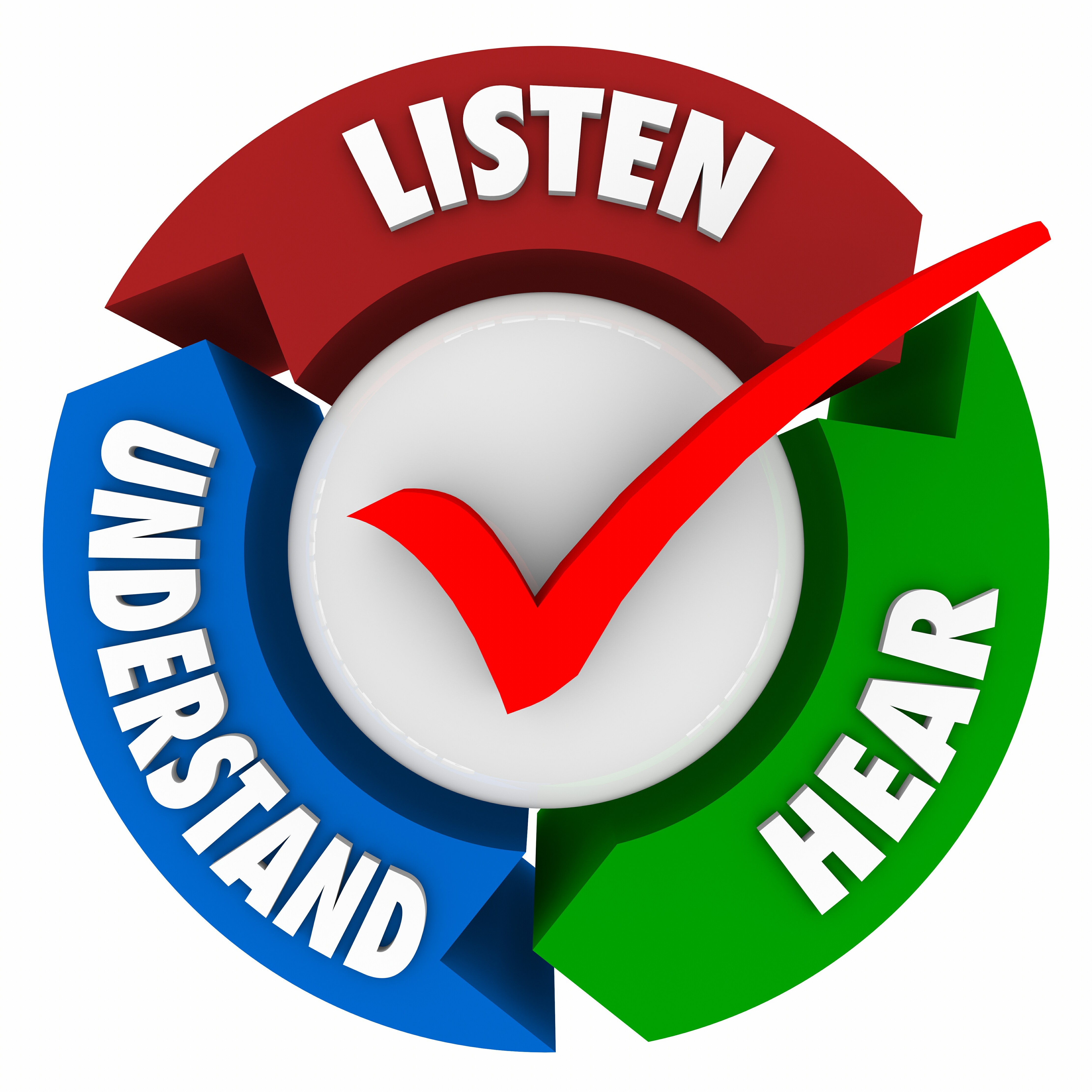You know that good communication skills are essential to rise to the top in business. Communications skills can endear you among your peers, raise your value among your superiors, and cause you to be admired among those subordinate to you. So, how can you develop them to meet your true potential? Here are some helpful tips for improving your business communication skills.
1. Practice Your Listening Skills (and Your Paying Attention Skills Too)

When others are speaking, are you really listening? We often confuse ‘listening’ with ‘being quiet’ but just because you aren’t talking while others are talking doesn’t mean you’re really listening. Learn to turn off your own internal dialogue and truly tune into what others are saying. It often helps to repeat what you’ve heard so that you know you’re paying attention and they know it too.
2. Collaborate, Don’t Dictate
Lectures, monologues, and ramblings don’t belong in business communications. If you find you’re speaking more than a few moments (except when giving a presentation or leading a demonstration), stop. Simplify what you’re trying to say as much as possible. Allow others to offer their input on the issue. Communication is about give and take, not dictating how things are going to be or how you think they should be.
3. Pay Attention to How You Spend Your Leisure Time
You probably didn’t expect this to be on the list. What do the TV shows you watch, the things you read, and your hobbies have to do with business communications? Well, the answer is twofold. First, they have the potential to expose you to new perspectives and important current events that help you grow your business intelligence. Odds are people who watch an hour of reality television daily aren’t going to be as capable of carrying a business-oriented conversation as well as those who spend their free time reading business journals and networking with successful mentors. Second, you will glean tremendously useful ideas and insights from more intellectual pursuits than from watching or reading less helpful material during your off time.
4. Invest in the Right Communication and Collaboration Tools
If you’re depending on email and social media for your communications, you’re probably receiving a lot of useless and redundant information and perhaps missing out on the most important conversations. A collaborative tool like Vmoso is the ideal way to streamline communications, collaborate on important projects, and build meaningful business relationships.
5. Don’t Wait Too Long to Bring Up Sensitive Issues
Allowing a situation to build and fester is a recipe for a breakdown in communications. It’s much easier, effective, and more professional to address an issue as soon as it pops up, while it’s still in its infancy, than to wait until it grows into a big, ugly, angry monster. Most of the time, a quick, direct discussion can resolve any interpersonal or professional issues without negatively affecting the relationship.
6. Learn to Have and Use a Good People Memory

Is Sheila a morning person, or is it better to approach her with a problem later in the afternoon? Does Samuel prefer a bagel when you swing by to pick up breakfast, or is he more of a sausage biscuit kind of guy? Is it Tuesdays or Thursdays that Becky has to leave as soon as possible to get her child to his orthodontist appointment? Do these little details seem meaningless to you? People are important. When you can remember details about their personal lives, it shows that you care for them beyond their work. This fosters a deeper, more meaningful relationship that will spill easily into a better, more rewarding business relationship.
As you can see, becoming a better communicator sounds a lot like becoming a better person. Any personal improvements you make in your own life flow readily and steadily into your work life.



